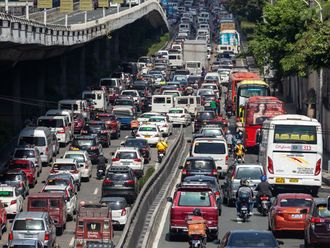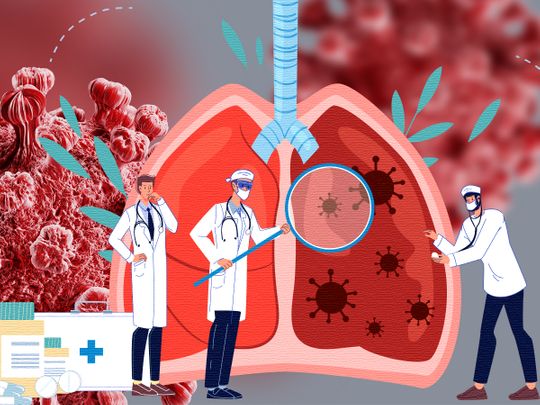
Highlights
- Experts say that not every COVID infection can be prevented, even with a vaccine.
- Regulators have authorised monoclonal antibodies, antivirals, and corticosteroids.
- These are available and licensed to treat the coronavirus disease.
[Note: This article is for information purposes only, and not meant as a medical prescription. If you have any symptoms, consult your doctor]
Dubai: Doctors take two major routes to deal with COVID-19. The first is to curb the virus; the second is to modulate our body’s response to it. At the initial onset of the disease, SARS-CoV-2 infection does trigger direct symptoms — coughing, a loss of smell. Then, as the disease progresses, it triggers reaction from body’s immune system. Sometimes, the immune response goes on an overdrive. This causes problems like inflammation and, later, organ damage, or even failure.
Getting a grip on this deadly disease has been a tricky job. In an ideal world, researchers conduct double-blind, randomised controlled trials — the so-called “gold standard” of drug efficacy and safety testing. Most of the approved COVID-19 vaccines used this standard.
Drug repurposing
The medical fraternity sometimes prescribe drugs for COVID-19 approved earlier for other uses, with established safety profile. This drug "repurposing" amounts to teaching news trick to old medications. One advantage is that it helps cut the years of study needed to ensure these drugs are safe.
Given the pandemic’s overwhelming effect, recruiting an adequate number of people for such studies and getting results in time pose a big challenge. So much of the evidence for repurposed drugs to treat COVID-19 comes from less-than-ideal “observational studies”. Based on trial results, such therapies are given emergency-use authorisation. The antiviral drug remdesivir and the steroid dexamethasone are examples of drugs repurposed to treat COVID-19.
Their efficacy hinges on one important condition: Getting patients PCR-tested for the virus at the earliest and getting results as soon as possible hold the key, especially for high-risk groups who need to be treated right away. especially if they begin to notice breathing issues.
We now know that vaccines do work — and are safe — against COVID-19. The vaccine research pipeline is long, which is good news. Scientists are still investigating better treatment options, and more therapies, from repurposed existing drugs to novel drugs. Other than vaccines, the following are approved treatments against COVID:
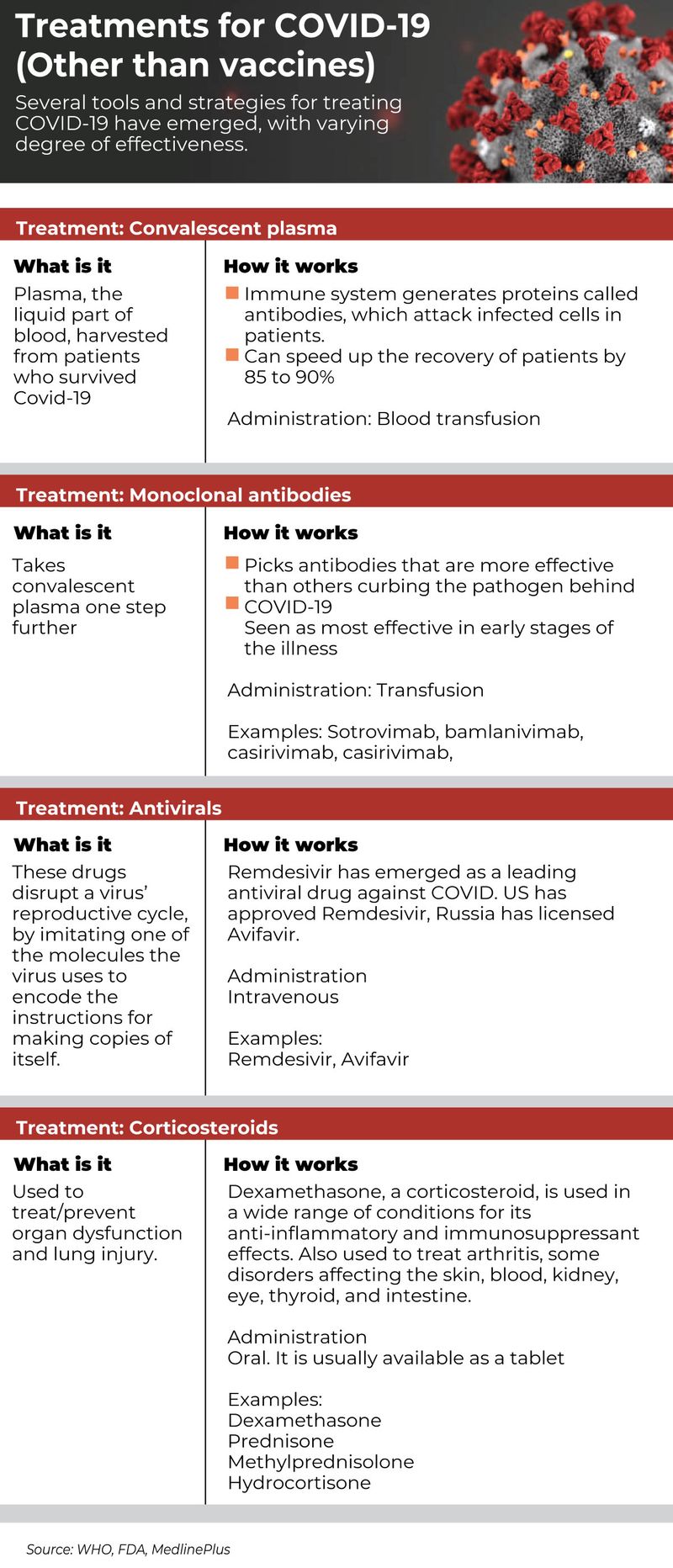
1. Convalescent plasma therapy (CPT)
Plasma is the liquid part of blood, including the proteins used for clotting. They’re harvested from patients who survived COVID-19. The immune system generates proteins called “antibodies” during an infection. They latch onto a part of the virus or to an infected cell. That attachment (or binding) can then block the virus from further invading hosts, preventing them from further replicating. They can also flag the virus or infected cells for destruction by “killer” T cells.
Convalescent plasma therapy (CPT) uses these proteins from recovered patients. Doctors transfer the plasma (through transfusion) with the desired antibodies to a patient with an active infection.
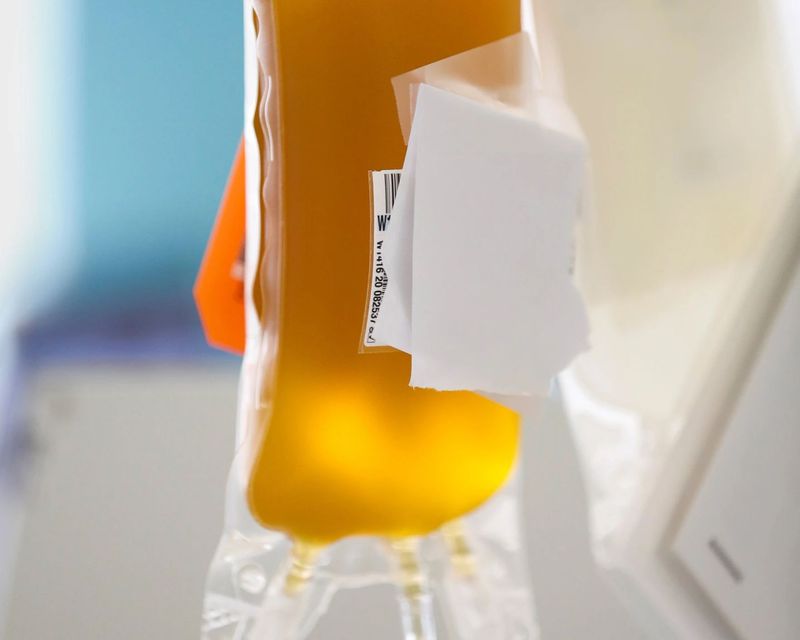
Does this technique work? At least three studies show it does, i.e. that blood from recovered patients has proven to be one of the weapons of choice in treating severe COVID-19 cases. Its efficacy depends on the patient’s age. A Dubai study shows a critical factor is giving it early enough.
Meanwnile, a three-month research (between April 4-July 4, 2020) conducted by Mayo Clinic on hospitalised patients revealed that plasma transfusions in a cohort of 35,322 patients led to lower risk of death. It has worked particularly on moderate-to-severe COVID cases. The US Food and Drug Administration (FDA) issued an emergency-use authorisation (EUA) for CPT on August 23, 2020, to treat moderate-to-severe cases of coronavirus.
The evidence of how well it works against SARS-CoV-2 is mixed. While the FDA gave EUA to CPT, the National Institutes of Health reported at the time that the evidence for its effectiveness was “weak”. Other studies show it helps slow the disease when administered early, particularly in older adults. FDA revised its guidelines allowing CPT to be used to treat hospitalised COVID-19 patients. There’s one challenge: availability of convalescent plasma. It is limited by the number of patients who donate.
Administration: It’s infused intravenously. It must be administered by a professional.
Side effects: There are also side effects, such as allergic reactions and circulation problems associated with transfusion.
2. Monoclonal antibodies
The use of monoclonal antibodies (mAbs) takes the idea behind convalescent plasma a notch higher. Some antibodies are more effective than others at ringfencing a given pathogen. Cloning the best antibodies, therefore, makes CPT even more efficient. mAbs are emerging as an important weapon against SARS-CoV-2. Sotrovimab, developed by GlaxoSmithKline (GSK) and Vir Biotechnology, works against known variants.
Bamlanivimab, developed by the pharmaceutical company Eli Lilly and the two-in-one cocktail of mAbs — casirivimab and imdevimab — created by Regeneron, were authorised by the FDA. President Trump famously received a course of the Regeneron therapy when he fell ill with COVID-19 last year.
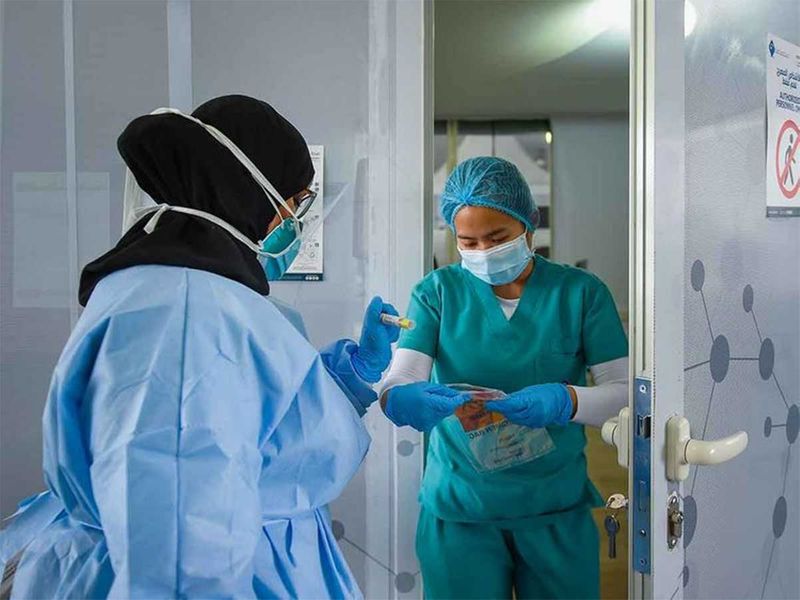
The UAE health authorities approved Sotrovimab on June 30, 2021. In general, monoclonal antibodies are most effective in the early stages of the illness, rather than in patients who are already hospitalised. The treatment reduced the likelihood of a high-risk patients needing hospitalisation.
Administration: Like convalescent plasma, it requires transfusion for patients — aged 12 years or more — with severe case COVID-19.
Side effects: They are similar to those of convalescent plasma, with allergic reactions being the main concern.
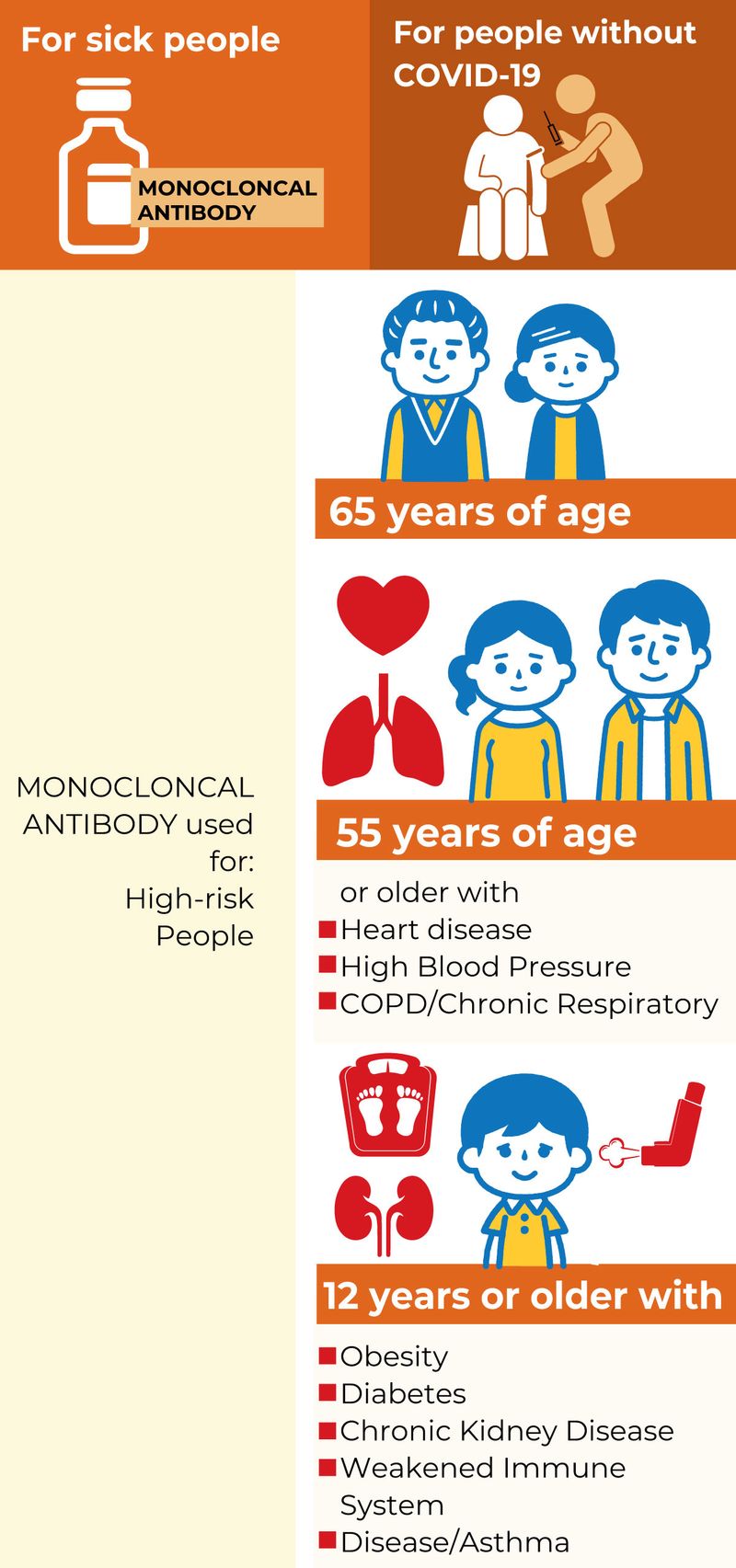
3. Antivirals
Antiviral drugs are aimed to disrupt the reproductive cycle of a virus. Viruses such as SARS-CoV-2 hijack our cells to reproduce. In October 2020, the US FDA approved Remdesivir for hospital use against COVID-19. It is the only antiviral drug approved by FDA for treating COVID-19.
How does it work? Remdesivir is given by injection into a vein – with or without corticosteroids such as Dexamethasone. It can be administered to adults and children over the age of 12 who weigh more than 40 kilos. The drug was first developed to treat Ebola, a viral haemorrhagic fever.
Other medicines considered for treatment of COVID-19 included Ivermectin and Nitazoxanide but they failed to get approval following insufficient data.
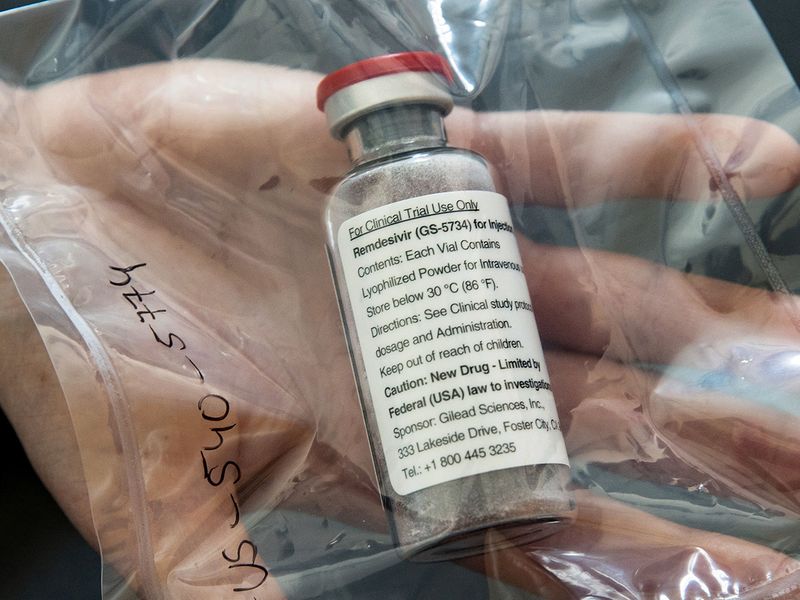
It imitates one of the molecules the virus uses to encode the instructions for making copies of itself. The impostor molecule stalls the viral replication process — but it doesn’t fool human cells, giving it a targeted effect. There are concerns about how well it works with COVID-19. On November 20, 2020, the WHO advised against remdesivir to treat COVID-19.
Other medicines considered for treatment of COVID-19 included Ivermectin and Nitazoxanide but they failed to get approval following insufficient data.
Administration: Intravenous transfusion, so it must be administered professionally, under medical supervision.
Side effects: Remdesivir is seen to trigger elevated liver enzymes, which could indicate liver damage, as well as allergic reactions leading to fever, shortness of breath, wheezing, swelling, low blood oxygen, and changes in blood pressure.
4. Corticosteroids
COVID-19 can, in some cases, nudge our immune system to go berserk. Immune cells can start attacking healthy cells. The strain of being on constant high alert can trigger dangerous immunological conditions like "cytokine storms", even if the virus has been cleared from the body. Enter steroids, in use for more than half a century. They help reduce inflammation and treat a range of conditions, including arthritis, asthma, immune system disorders, allergic reactions, cancer and some skin conditions.
Steroids that modulate the immune system help patients in more advanced stages of COVID. This seems to be the case with dexamethasone, a generic corticosteroid. It’s one of the few drugs that has been shown to actually reduce the mortality rate of COVID-19, and it costs as little as $1 per dose.
Dexamethasone is a corticosteroid used in a wide range of conditions for its anti-inflammatory and immunosuppressant effects. It is similar to a natural hormone produced by the adrenal glands and used as a replacement when the body doesn't produce enough of it. Dexamethasone is quite versatile: it's used to treat/prevent organ dysfunction and lung injury, as well as to treat arthritis and some disorders affecting the skin, blood, kidney, eye, thyroid, and intestine.
When Dexamethasone was tested in patients on ventilators, the treatment was found to reduce mortality by about one-third, and for patients requiring only oxygen, mortality was cut by about one-fifth.
Dexa has now become one of the most common drugs used to treat hospitalized COVID-19 patients who are ill enough to need oxygen support.
Administration: Oral (usually available as a tablet)
Side effects: Because it can slow the immune system, it could actually backfire in early stages of COVID-19 when the virus itself is the main concern. Dexamethasone can also leave patients vulnerable to other infections and may cause dizziness, an irregular heartbeat, and psychiatric problems like anxiety.
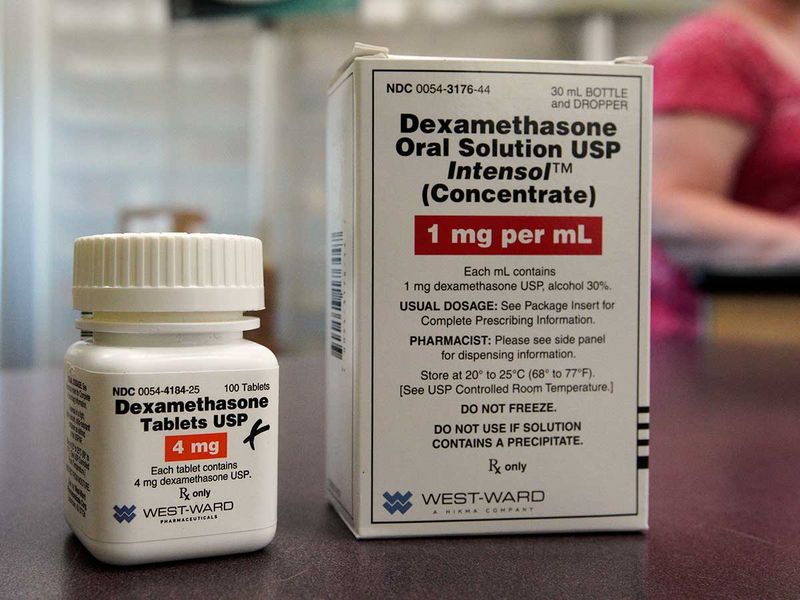
A UAE doctor's take on monoclonal antibody (mAb) therapy:
Dr Vikas Bhagat, Head of Department, Critical Care Medicine , Aster Hospital
What are monoclonal antibodies?
A monoclonal antibody is a molecule developed in a laboratory that is designed to mimic or enhance the body’s natural immune system response against an invader. They have an advantage over other types of treatment for infection because they are created to specifically target an essential part of the infectious process. A monoclo- nal antibody is created by exposing a white blood cell to a particular viral protein, which is then cloned to mass produce antibodies to tar- get that virus.
Do they really work against COVID-19?
Monoclonal antibodies are effective, as evidenced from studies conducted against COVID-19, as post-exposure prophylaxis to prevent severe diseases or complications. However, some mutations may cause changes in the spike protein that could interfere with the effectiveness of currently available monoclonal antibodies. Although researchers are still learning which patients with COVID-19 are most likely to benefit from monoclonal antibody therapy, early data suggest greater benefit in high risk patients. Monoclonal antibodies are intended for patients recently diagnosed as having COVID-19 who are not sick enough to be in the hospital but who have some risk factors for severe infection. Giving the infusion as early as possible in the course of infection is important

Which monoclonal antibody drugs against COVID-19 are used today?
Three monoclonal antibody therapies targeting SARS-CoV-2 (bamlanivimab-etesevimab [B-E], casirivimab-imdevimab [C-I], and sotrovimab are available and approved for the treatment of outpatients with early, mild to moderate COVID-19 and risk factors for severe disease. In preliminary reports of randomised trials, they reduced the combined rates of hospitalisation and death compared with placebo.
Indication:
- Mild to moderate COVID-19 who are at high risk of clinical progression.
- Those who are not on oxygen therapy.
- Treatment to be ASAP must be within 10 days of onset.
High risk of progression:
- Body mass index (BMI) ≥35, Chronic kidney disease, Diabetes mellitus, Immunocompromising condition, Currently receiving immunosuppressive treatment, Aged ≥65 years,
- Aged ≥55 years and have:Cardiovascular disease, or Hypertension, or Chronic obstructive pulmonary disease or another chronic respiratory.
What is the typical dosage for complete treatment?
• Casirivimab-imdevimab (600-600 mg, /1200-1200 mg, administered as a single IV dose [preferred], although may be given subcutaneously if IV not feasible or would delay treatment).
• Sotrovimab (500 mg, administered as a single IV dose).
• Bamlanivimab-etesevimab (700-1400 mg, administered as a single intravenous [IV] dose; distribution paused in the United States in June 2021 due to variants of concern with likely resistance to this agent).
What’s been your experience with it: Are they combined with other therapies (i.e. dexamethasone)?
Though here in our practice we have not used any of this, literature states that monoclonal antibodies also can be used in combination with corticosteroids, such as dexamethasone, to dampen the immune response in very ill hospitalised patients.
Some COVID patients get sicker because of an overreaction of the body’s immune response (a cytokine storm) to the viral infection. When this happens, the body overproduces interleukin-6 (IL-6) — a protein involved in inflammation — in lung cells. The FDA has granted EUA for tocilizumab (Actemra), a monoclonal antibody that blocks the action of IL-6, and thereby dampens the exaggerated immune system response.
Do you see more extensive mAb use going forward in the fight against COVID, as treatment?
Although vaccines have been approved for mass vaccination, questions about their long-term effectiveness and any vaccine-related side effects are still to be answered. As a result, monoclonal antibodies will remain a viable alternative to the COVID-19 vaccine for the foreseeable future.
Can you use mAbs against COVID-19 alongside vaccines. What’s the difference?u
mAbs would provide viable therapeutic options for immune compromised and vaccine refractory individuals ( who cannot develop or maintain an adequate immune response after vaccination, such as older adults) In people who had not produced their own antibodies against the SARS-CoV-2 virus, monoclonal antibody treatment reduced the chances of dying by 20%. Monoclonal antibodies did not benefit people whose immune systems had already created antibodies in response to the virus.
Monoclonal antibodies may be able to provide immediate protection or treatment for those who are exposed and not yet vaccinated. After vaccination our bodies respond to the vaccine by making antibodies against the virus. While, in case of mAb antibody, we skip that step and antibodies are directly injected in our bodies.
Another key difference: antibodies produced naturally by your body in response to a vaccine can last for a long time, but these laboratory-made monoclonal antibodies usually only last for a few months.


